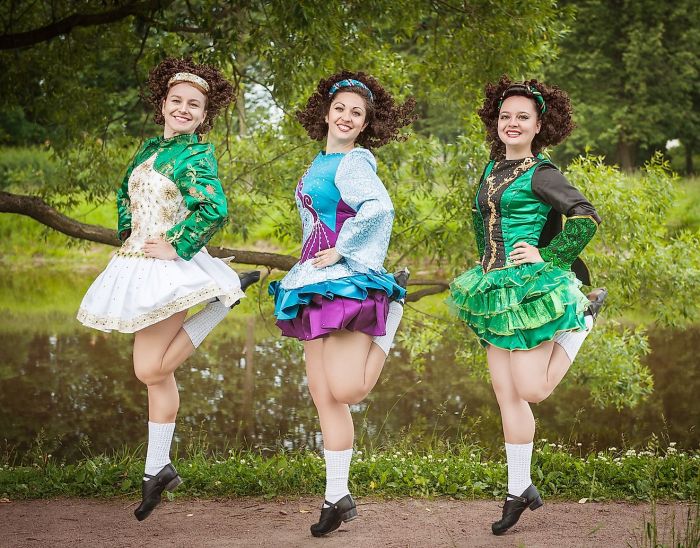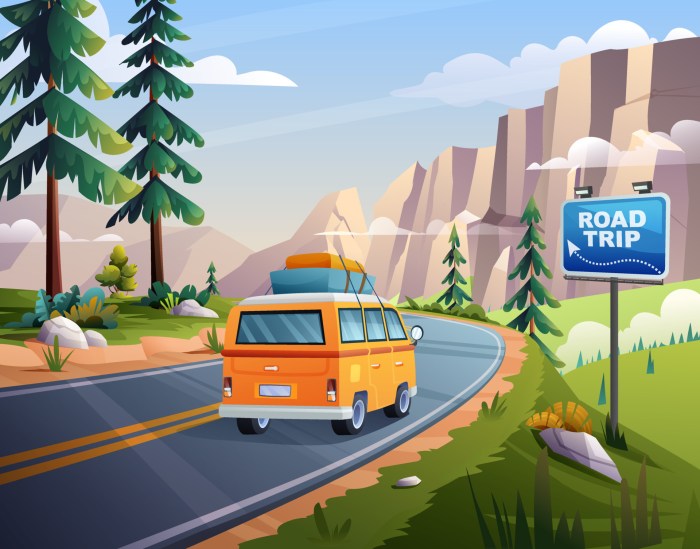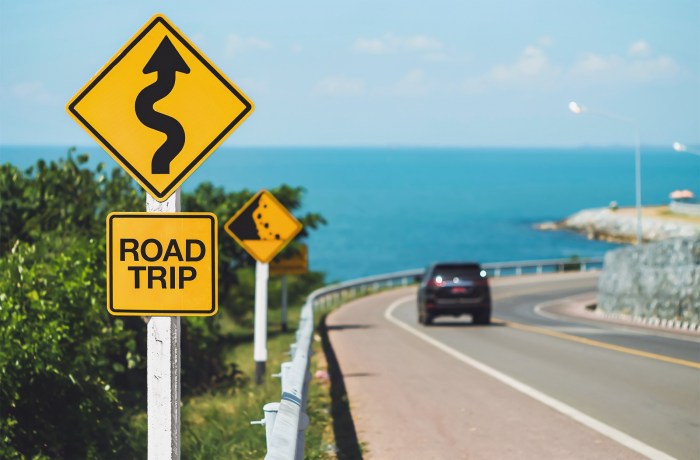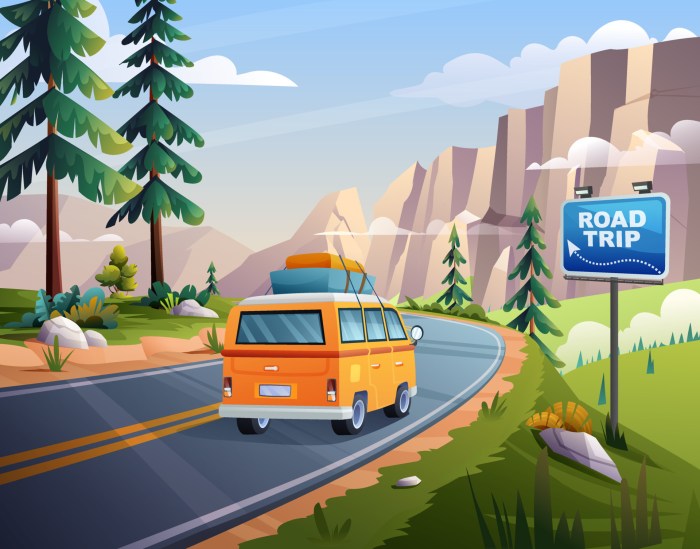Poitin Ireland illegal alcohol comeback is gaining traction, drawing attention to a spirit with a rich history. From its traditional roots in Irish culture to its modern resurgence, poitin’s journey is a fascinating blend of tradition and innovation. The story of poitin’s comeback isn’t just about the drink itself, but about the complex interplay of history, economics, and public perception surrounding its production and consumption.
This post delves into the historical context of poitin, exploring its evolution from traditional methods to modern distilleries. We’ll examine the factors driving its revival, including tourism and changing consumer tastes. A crucial part of the discussion is the ongoing debate surrounding its illegal production and consumption, highlighting the motivations behind it, the public health implications, and the associated penalties.
The cultural significance of poitin in Irish society, its portrayal in literature and media, and its role in social gatherings will also be examined.
Historical Context of Poitin
Poitin, the traditional Irish spirit, has a rich and complex history deeply intertwined with Irish culture and social life. Its production, often clandestine, has been influenced by both necessity and social factors. From its humble beginnings as a home-brewed spirit to its current status as a subject of debate and legal challenges, poitin’s journey mirrors Ireland’s own evolution.Poitin’s history reflects Ireland’s complex relationship with alcohol.
For centuries, it served as a source of sustenance and social gathering, while simultaneously being viewed with suspicion and regulated by law. The changing legal landscape surrounding poitin highlights the ebb and flow of social attitudes towards alcohol, and how those attitudes have shifted over time.
Traditional Methods of Poitin Production
Poitin production traditionally involved simple methods, often using readily available ingredients like potatoes, barley, or grain. These methods were passed down through generations, with variations dependent on local resources and family traditions. The processes were generally straightforward but could lead to varying qualities of the final product. These methods, while often simple, required considerable knowledge and skill to ensure a relatively safe product, which in some cases, required some degree of distillation skill.
Legal Status of Poitin Throughout Irish History
The legal status of poitin has been highly variable throughout Irish history. Periods of prohibition were often punctuated by periods of regulation, with differing levels of tolerance for its production and consumption. The legal frameworks surrounding poitin’s production and sale have reflected evolving social attitudes towards alcohol and the government’s ability to enforce those laws. The legal battles surrounding poitin have often reflected wider social and political tensions within Ireland.
Consumption Patterns Compared to Other Alcoholic Beverages
Consumption patterns of poitin varied across different socio-economic groups and regions. In rural areas, poitin often served as a primary source of alcohol, while in urban centers, it might have been consumed alongside other beverages. Historical records and anecdotal evidence suggest that poitin’s consumption was often associated with social gatherings and celebrations, similar to other alcoholic beverages of the time.
While the specific consumption patterns of poitin are not always clearly documented, the general trend shows its use as part of Irish culture.
Evolution of Poitin’s Legal Status
| Era | Dates | Relevant Legislation | Status |
|---|---|---|---|
| Early Modern Ireland (Pre-1800) | Pre-1800 | Various local customs and regulations | Generally tolerated, often produced and consumed locally. |
| 19th Century | 1800-1900 | Increased excise duties and regulations | More regulated, with increased tax burdens on production and sale. |
| 20th Century (Early) | 1900-1970 | Prohibition periods and fluctuating regulations | Periods of outright prohibition, with subsequent efforts at regulation. |
| 20th Century (Later) | 1970-Present | Decriminalization and contemporary legislation | Legal status has become more nuanced, reflecting a broader acceptance and regulation of craft spirits. |
This table provides a simplified overview of the evolution of poitin’s legal status. Each era had its unique set of regulations and interpretations, reflecting the changing social and political landscape of Ireland. More detailed research into specific legislation and enforcement practices would offer a more nuanced picture.
Modern Poitin Revival
The resurgence of poitin, Ireland’s potent and often illicit spirit, is a fascinating case study in changing consumer tastes and the enduring appeal of tradition. No longer relegated to the shadows of clandestine stills, poitin is finding a new audience, driven by a combination of factors that blend historical appreciation with modern sensibilities. This renewed interest is transforming the way poitin is produced and consumed, pushing the boundaries of traditional methods while honoring their heritage.Modern distilleries are not simply recreating the past; they are innovating, creating unique poitins that cater to contemporary palates.
This involves meticulous attention to detail, from the selection of ingredients to the distillation process, often incorporating techniques and equipment that were previously unavailable. This evolution reflects a desire for quality and authenticity in a market that increasingly values handcrafted goods.
Factors Contributing to the Poitin Revival
Several factors have fueled the resurgence of interest in poitin. Tourism, seeking unique experiences, is a key driver. The allure of sampling a traditional Irish spirit, often paired with local experiences, is a significant contributor to the revival. Craft distilleries, with their focus on small-batch production and quality control, are also pivotal. These distilleries cater to a growing market of consumers seeking unique and flavorful spirits, reflecting a shift from mass-produced, generic products.
Changing consumer preferences, including a growing appreciation for handcrafted and artisanal products, contribute significantly. This trend extends to a demand for locally sourced ingredients and transparent production methods.
Ireland’s poitin, the illicit spirit, is making a comeback. With its unique flavour profile, it’s drawing renewed interest from craft distillers and adventurous drinkers. If you’re looking for a fascinating way to explore this resurgence, checking out some fantastic staycation ideas could be a great way to discover this local craft spirit. Perhaps a visit to a small-batch distillery for a tasting experience could be just the ticket for your next staycation, as detailed in trip ideas staycations best staycation.
Ultimately, experiencing the poitin scene is a unique and potentially rewarding part of a cultural exploration.
Modern Poitin Distilleries and Production Approaches
Numerous modern distilleries are leading the charge in the poitin revival. For example, [Name of Distillery 1] focuses on using locally sourced barley and water, adhering to traditional techniques while introducing modern equipment for efficiency and quality control. Another example, [Name of Distillery 2], embraces a more experimental approach, blending traditional methods with innovative flavour profiles, such as adding botanicals or fruits.
These examples showcase the diversity and creativity emerging in the poitin industry.
Comparison of Traditional and Modern Production Methods
Traditional poitin production often relied on simple equipment and methods, resulting in a spirit with a distinctive, often robust, character. Modern distilleries, while respecting tradition, often employ more sophisticated equipment and techniques to refine the flavour and ensure consistent quality. They might utilize column stills, for example, to achieve a smoother and more nuanced poitin compared to the traditional pot stills, potentially yielding a wider range of poitin styles.
This comparison underscores the evolution of poitin production.
Comparison of Modern Poitin Brands
| Brand | Key Characteristics | Target Market |
|---|---|---|
| [Brand Name 1] | Traditional method with modern equipment, emphasis on smooth finish. | Consumers seeking a balanced poitin, familiar with traditional tastes but also open to modern refinements. |
| [Brand Name 2] | Experimentation with unique botanicals and fruits, bold flavour profiles. | Consumers seeking adventurous flavour experiences, intrigued by innovative flavour combinations. |
| [Brand Name 3] | Focus on local sourcing, showcasing regional ingredients. | Consumers interested in locally produced and sustainable products, and seeking authentic Irish flavour. |
This table highlights the variety of approaches and target markets within the modern poitin landscape. Each brand, in its own way, caters to a specific segment of the market, driven by their unique production methods and flavor profiles.
Illegal Production and Consumption
The resurgence of poitin in Ireland, despite its historical illegality, presents a complex interplay between tradition, economics, and the legal framework. This revival, while offering a unique taste of Irish heritage, also necessitates a careful examination of the implications of illegal production and consumption. Understanding the motivations behind such activity, the associated risks, and the current legal landscape is crucial for a comprehensive perspective.The current legal landscape surrounding poitin in Ireland is complex and often contradictory.
While small-scale, artisanal distilling of traditional Irish whiskey is permitted under certain regulations, the production of poitin, typically made using unregulated methods, remains illegal. This legal ambiguity creates a grey area, allowing for continued illegal activity while potentially hindering the development of a sustainable and regulated poitin industry.
Motivations Behind Illegal Production
The motivations for illegal poitin production are multifaceted and often intertwine. Economic factors, such as the potential for higher profit margins compared to legal distilling, are frequently cited. The allure of bypassing costly licensing procedures and regulations plays a significant role. Additionally, cultural aspects, such as the desire to maintain traditional methods and the preservation of a unique craft, can contribute to the decision to operate outside the legal framework.
Personal reasons, including a strong desire to maintain control over the production process or a personal attachment to the tradition, can also influence the decision to produce poitin illegally.
Potential Consequences for Public Health and Safety
Illegal poitin production poses significant risks to public health and safety. The unregulated nature of the process often results in products with inconsistent quality and potentially harmful impurities. This lack of quality control can lead to severe health issues, including alcohol poisoning and other intoxications. Furthermore, the absence of safety measures during production can create hazardous environments for producers and potentially expose nearby communities to health risks.
Examples of contaminated or improperly produced alcoholic beverages resulting in public health issues are prevalent in various parts of the world, serving as a cautionary tale.
Legal Penalties for Illegal Poitin Production and Consumption
The legal penalties for illegal poitin production and consumption in Ireland vary depending on the severity of the offense and whether it’s an individual or business-related action.
| Offense Category | Description | Potential Penalties (Examples) |
|---|---|---|
| Individual Offenses (Consumption) | Consumption of illegally produced poitin | Fines, community service, or in extreme cases, a short prison sentence. |
| Individual Offenses (Production) | Production of poitin without the necessary licenses or permits. | Fines ranging from several hundred to thousands of euros, seizure of equipment, and possible imprisonment. |
| Business Offenses (Production) | Illegal production of poitin by a business or enterprise. | Significant fines, closure of the business, and criminal charges against the responsible parties. |
“The penalties for illegal production are often significantly higher than those for consumption, reflecting the greater potential harm and disruption associated with the illegal production of alcohol.”
Cultural Impact and Perception
Poitin’s journey through Irish history isn’t just about its production and consumption; it’s deeply intertwined with the nation’s cultural identity. From its clandestine beginnings to its resurgence, poitin has been a symbol of both tradition and rebellion, reflected in literature, music, and the very fabric of Irish social gatherings. Understanding its cultural perception today requires exploring its complex relationship with other alcoholic beverages and its place in contemporary Irish society.The enduring fascination with poitin is evident in how it’s portrayed across various art forms.
This potent spirit, often associated with rural life and a strong sense of Irish heritage, transcends mere alcohol; it represents a cultural touchstone. The public perception of poitin, however, is multifaceted and often nuanced, shaped by factors such as its historical context, the legal status of its production, and its perceived association with certain social groups.
Poitin in Irish Literature, Music, and Film, Poitin ireland illegal alcohol comeback
Poitin has frequently been featured in Irish literature, music, and film, often embodying themes of tradition, rebellion, and social commentary. Irish folklore and storytelling often depict poitin as a crucial part of rural life and social gatherings. The spirit is often associated with characters who embody resilience, resourcefulness, and a connection to their ancestral lands. This representation isn’t always straightforward; it can also be portrayed in a negative light, highlighting potential dangers associated with its consumption.
Poitin in Irish Social Gatherings and Celebrations
Poitin’s role in Irish social gatherings and celebrations is significant, often playing a symbolic part in commemorating traditions and marking milestones. From family gatherings to community festivals, poitin may be served to celebrate life’s events. It’s important to note that the perception of poitin within these settings can vary widely depending on the specific social group and the overall context of the celebration.
Public Perception of Poitin Compared to Other Alcoholic Beverages
Public perception of poitin in relation to other alcoholic beverages is complex. While some view it as a unique and authentically Irish spirit, others may perceive it as a less refined or less sophisticated alternative to more mainstream options. This perception often hinges on the specific context of consumption, the perceived quality of the poitin, and the individual’s personal preferences.
In some cases, poitin might be seen as a symbol of Irish tradition, while in others, it might be viewed as a less desirable or even dangerous drink. Furthermore, the perception of poitin is significantly impacted by the ongoing debate surrounding its legality and production methods.
Economic Implications
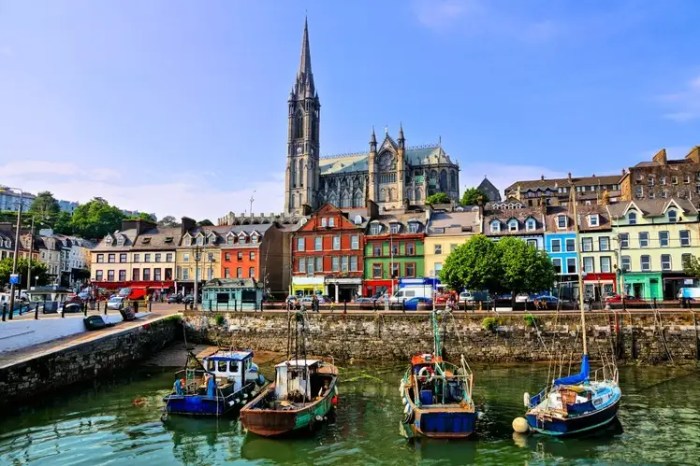
The resurgence of poitin in Ireland, both legal and illicit, presents a complex tapestry of economic implications. Its impact extends beyond simple revenue generation, touching upon tourism, employment, and the very fabric of local communities. Understanding the potential benefits and pitfalls is crucial for navigating this evolving landscape.The revival of poitin production, whether within the legal framework or through clandestine operations, is injecting a fresh dynamic into the Irish economy.
Ireland’s poitin, the illicitly produced spirit, is making a surprising comeback. While enjoying a glass of this historically significant brew, consider the vibrant traditions of Semana Santa in Spain, a fascinating contrast. Learning about the elaborate processions and religious pageantry of guide to semana santa spain offers a different perspective on cultural expressions. The resurgence of poitin, however, is rooted in a unique Irish heritage and its place in the country’s history.
It’s a fascinating journey into both traditions.
This resurgence could stimulate innovation in traditional distilling techniques, potentially leading to new export markets. Furthermore, the demand for poitin could revitalize related industries, such as agricultural production of raw materials and packaging.
Tourism Impact
The allure of the traditional Irish spirit is increasingly attracting tourists. Experiences involving traditional poitin distilleries, tasting sessions, and historical tours related to its production are growing in popularity. This growing interest in cultural heritage and unique experiences can lead to increased tourism revenue, benefiting local businesses and communities. The Irish tourism industry is adapting to this trend by offering specialized tours that focus on the history and cultural significance of poitin, highlighting the craftsmanship and heritage associated with its production.
Employment Opportunities
The poitin revival is expected to create new jobs in various sectors. Legal distilleries will need staff for production, sales, marketing, and customer service. The demand for raw materials, packaging, and related services will also stimulate employment opportunities. The increase in tourism linked to poitin experiences will generate employment in hospitality and related industries. However, the unregulated and illegal aspects of poitin production may offer employment in a less transparent and often precarious manner.
Revenue Generation
The revenue generated from legal poitin production will contribute to government tax revenue. This revenue can be reinvested in infrastructure projects, social programs, and other areas benefiting Irish society. While the revenue from illegal poitin production does not contribute to the formal economy, its impact on the informal economy and potential for tax evasion should not be underestimated.
The potential revenue from legal and illegal poitin production must be viewed in context, considering the various legal and ethical implications.
Impact on Local Communities
The revival of poitin production can have a significant impact on local communities. Legal distilleries can bring economic activity to rural areas, creating jobs and stimulating local businesses. The increased foot traffic and tourism from poitin-related experiences can revitalize local economies, fostering a sense of community pride and economic development. However, the impact on communities with a history of illegal production and consumption must be considered, addressing issues of law enforcement and social issues that arise from illicit activity.
It is essential to ensure that the benefits of the poitin revival are distributed fairly and sustainably within local communities.
Potential Challenges
The poitin revival is not without its challenges. Maintaining a balance between tradition and regulation will be crucial to avoid a return to unregulated production and associated problems. Potential issues include potential safety concerns, environmental impact, and the need to ensure that the poitin revival benefits the entire community, not just a select few. The challenge lies in ensuring that the economic benefits are widely distributed and that social responsibility is at the forefront of any economic development related to poitin.
Public Health Concerns
The resurgence of poitin in Ireland presents complex public health challenges, particularly given its unregulated production and potential for high alcohol content. Understanding the risks associated with consuming this potent spirit is crucial for responsible consumption and public health initiatives. The clandestine nature of its production often means a lack of quality control, raising concerns about potential contaminants and inconsistencies in alcohol strength.The unregulated production of poitin, often in makeshift stills and with little to no adherence to safety standards, poses significant health risks.
This contrasts sharply with the regulated production of other alcoholic beverages, which often includes rigorous quality control measures. These measures, while not a guarantee of complete safety, do help reduce the likelihood of contamination and other harmful ingredients.
Potential Health Risks of Poitin Consumption
Poitin’s high alcohol content is a significant concern. A higher alcohol content translates to a higher risk of acute alcohol poisoning, which can lead to serious health complications or even death. The unregulated nature of poitin production also raises concerns about the presence of harmful substances in the final product. These contaminants, such as methanol or other impurities, can cause severe health problems.
Cases of poitin-related illnesses have been reported in the past and highlight the importance of responsible consumption.
Ireland’s poitin, the historically illicit spirit, is making a surprising comeback. While exploring the fascinating world of this traditional, and sometimes illegal, alcohol, it’s important to remember that if you’re planning a trip to El Salvador, you’ll want to research things to know before traveling to El Salvador regarding local laws and customs. This resurgence in popularity of poitin highlights a fascinating cultural trend, but responsible drinking remains crucial.
Mitigating Health Risks Associated with Illegal Poitin
Addressing the health risks associated with illegal poitin requires a multifaceted approach. Public awareness campaigns highlighting the dangers of consuming unregulated alcohol are essential. These campaigns should emphasize the potential for serious health consequences and encourage responsible consumption habits. Stricter enforcement of alcohol regulations, particularly regarding the production and sale of poitin, is necessary. Improved public health education programs can empower individuals with knowledge about alcohol safety and responsible consumption practices.
Comparison of Health Risks with Other Alcoholic Beverages
Poitin, due to its unregulated nature and often high alcohol content, carries a higher risk of health complications compared to regulated alcoholic beverages. While all alcoholic beverages can have negative impacts on health, the potential for contaminants and extreme alcohol strength in poitin makes it a greater concern. A comparison can be made by examining the typical alcohol content in different beverages and contrasting it with the often-unpredictable alcohol content in poitin.
This unpredictable nature leads to increased health risks.
Importance of Responsible Consumption and Education Initiatives
Promoting responsible consumption habits is vital in mitigating the negative health consequences associated with poitin. Education initiatives should emphasize the dangers of excessive alcohol consumption, regardless of the type of beverage. These initiatives should also cover the specific dangers associated with unregulated alcohol and the risks of mixing it with other substances. Providing clear information on the health risks and potential consequences is paramount.
For instance, educational materials could provide details about symptoms of alcohol poisoning and appropriate first aid measures. Public awareness campaigns can empower individuals with the knowledge to make informed choices and prioritize their health.
International Comparisons: Poitin Ireland Illegal Alcohol Comeback
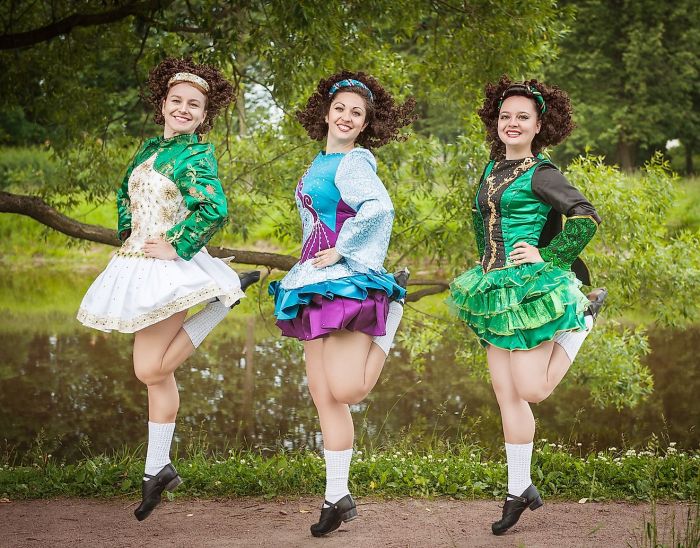
The global craft spirits movement has seen a surge in recent years, with consumers seeking unique and artisanal products. This renewed interest has created a fertile ground for the resurgence of poitin, an Irish spirit with a rich history and unique production methods. Understanding how poitin fits into this international trend requires comparing its production and appeal to similar spirits elsewhere.The global craft spirit market is highly competitive, with many countries boasting unique and historically significant distilling traditions.
Irish poitin, with its emphasis on natural ingredients and traditional methods, can carve out a niche for itself by highlighting its distinctive character and historical context. Direct comparisons with other craft spirits will reveal similarities and differences in production processes and market appeal.
Global Interest in Craft Spirits
The craft spirit movement is a global phenomenon driven by consumers seeking unique flavour profiles and handcrafted products. Consumers are increasingly interested in the stories behind spirits, from the terroir to the traditional production methods. This trend is not limited to any specific region, but is widespread across the globe.
Poitin Production Methods Compared
Poitin production methods often contrast with those of other countries. While some craft spirits may use modern techniques and sophisticated equipment, poitin often relies on traditional methods that emphasise the natural character of the ingredients. This includes distillation in small stills and the use of locally sourced grains and pot stills. For instance, the traditional pot still used for poitin distillation is a key element that distinguishes it from many other spirits.
Comparison with Other Craft Spirits
Several craft spirits worldwide share similar attributes with poitin. For example, Japanese whisky distilleries often use traditional methods, albeit adapted to modern standards, emphasizing the quality of local ingredients. Similarly, some American craft vodkas and gins utilize locally sourced botanicals, reflecting the spirit of regional identity.
Examples of Similar Craft Spirits
- Japanese Whisky: Many Japanese whisky distilleries, like Suntory and Yamazaki, emphasize the use of locally sourced barley and traditional methods, mirroring the dedication to quality ingredients and craftsmanship seen in Irish poitin production. The focus on terroir and the use of traditional Japanese methods in these whiskies showcase a similar appreciation for quality and history as found in the Irish spirit.
- American Craft Vodkas: Some American craft vodkas highlight the use of locally sourced grains and botanicals, emphasizing the unique character of the region, in a manner comparable to the emphasis on local ingredients in poitin production.
- European Craft Gins: Many European craft gin distilleries showcase innovative botanical blends and unique flavour profiles, often highlighting the history and craftsmanship of their production methods, mirroring the uniqueness and historical significance of poitin.
Factors Influencing International Recognition of Poitin
Several factors influence the international recognition of poitin, including its historical significance, the unique production methods, the strong emphasis on the terroir, and the increasing interest in craft spirits. The strong cultural identity tied to poitin, as well as the authenticity and traditional craftsmanship of the spirit, are also contributing factors.
Concluding Remarks
The poitin comeback in Ireland is a multifaceted phenomenon. It reflects a blend of tradition, innovation, and the complexities of the Irish spirit. From its historical significance to its modern revival, poitin’s journey presents a compelling case study in cultural evolution and economic implications. Ultimately, the future of poitin in Ireland depends on striking a balance between preserving its cultural heritage, addressing the public health concerns associated with unregulated production, and harnessing the potential economic benefits of this resurgence.
